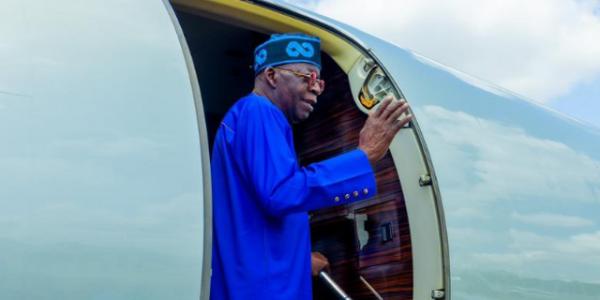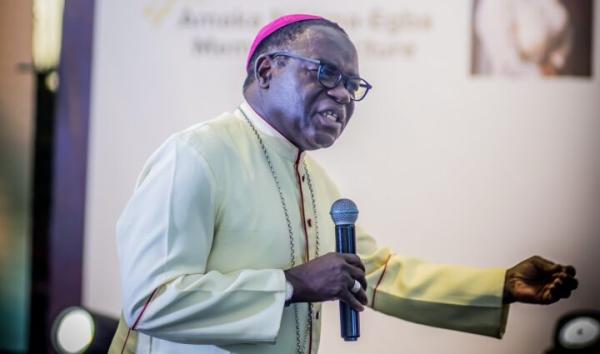
Bishop Emmanuel Ade Badejo, Chairman, CBCN Directorate of Communications
The 48th World Day of Communication
For the 48th World Communications Day being celebrated today Pope Francis dedicated his message to the marvelous potential of communication to create authentic and productive encounters and bring people together. The message entitled “Communication at the Service of an Authentic Culture of Encounter” invited all especially Christian communicators to particularly consider the challenges and opportunities posed to evangelization by the new technologies and accelerated development in communications. As the new social spaces of relationship enhance humanity and community, do they also enhance spirituality and solidarity? In a world made ever smaller by technology, The Pope urged that all focus on the capacity of the internet to engender self-expression, mutual respect and solidarity. In our fragmented world suffering from “many forms of exclusion, marginalization and poverty, to say nothing of conflicts born of a combination of economic, political, ideological and sadly even religious motives”, the very notions of mutual respect and solidarity certainly preview healing and harmony for all. This, the Pope affirms is something truly good and is a gift of God.
Communicators in the Fray In his letter to all the Bishops working in communications worldwide, Gustavo Andujar, President of SIGNIS International (the International Association of Catholic Communicators) stated: “The commitment of SIGNIS to constructing a culture of peace through the media is fully consonant with this appeal of Pope Francis for us to assume an attitude of dialogue, putting communication at the service of a culture of encounter”. In other words we can assume that it is within the powers of those who engage with the media at all levels to turn the tools of their trade or pleasure into fertile ground for understanding, dialogue, concessions, accords and agreements that can bring about a harmonious society. Better put, the general use of advanced technologies of communication and information do not necessarily by themselves bring people together close to the ideal of transforming the human family. We need to complete the power of the media available to us with a sincere desire for conversion of heart, mind and means. Only in this manner can we generate compassion and solidarity towards other people, those who suffer, those in need and thus create peace of mind for ourselves. This is why Pope Francis proposed therefore, as a departure point, the capacity of learning to look at others, to listen to them and to enter into dialogue with them thorough attentiveness to their needs.
The Good Samaritan Communicator Christian communicators are therefore challenged to do even more. They must inspire their colleagues to desire these same ideals. As an aid, Pope Francis proposed for reflection the parable of the Good Samaritan (Lk.10:30-37), which, he declared, is “a parable on communication”. This parable was evoked by the question of the man who came to Jesus and asked the question: “Who is my neighbour?” (Lk.10:29).
The Holy Father’s solution is simple. He says that those who truly communicate become neighbours. “The Good Samaritan not only draws nearer to the man he finds half dead on the side of the road; he takes responsibility for him. Jesus shifts our understanding: it is not just about seeing the other as someone like myself, but of the ability to make myself like the other”. In other words Christian communicators do not simply seek to be on the digital highways and be connected with others. They need to develop their connections into true encounters by being concerned with humanity, showing tenderness, and love. On this breath the Pope challenged the age-long concept of media impartiality, or rather its understanding, which cannot be absolute. He said, “personal engagement is the basis of the trustworthiness of a communicator” How would Jesus Christ have earned the accolade of being “the perfect Communicator” if he had remained dispassionate about the destiny of man without “getting involved?”
Curing the travesty of encounter in Nigeria no one needs to be told how easily decadent humanity has misused the media and the tools of technology for misinformation, oppression, intimidation, terror, brutality and death. Gory and frightening details of the exploits of the Boko Haram and other evil activities in Nigeria as disseminated by the media in particular often aggravate the bad situation and sow an atmosphere of siege and fear, in many cases giving the impression that there is nothing but tragedy and woes left to report about the country. Such demoralizing deployment of media does not “feel for the other” and cannot enable an authentic encounter. The first Boko Haram bombs to explode in Nigeria were activated by telephone handsets and electronic remote controls. Thus, the handset, generally seen as a positive tool for connecting people and creating community became also a tool of death and tragedy. Over and above these tools and facilities of the media, the human being behind the tool, must rise to promote peace and neutralize the travesty of productive encounter which such a misapplication of the gift of communication could cause. The challenge of the Pope to the Church worldwide is no less true of the media and all who engage with them. Said the Pope, “… if a choice is to be made between a bruised Church which goes out to the streets and a Church suffering from self absorption, I certainly prefer the first. Those streets are the world where people live and where they can be reached both effectively and affectively….In the area of communications too, we need a Church capable of bringing warmth and of stirring hearts”. The media and media practitioners appropriating those worlds to themselves and their activities are the ones who can make the most valuable contribution to creating authentic encounters and a better world. And how really badly we need them in our country!






















